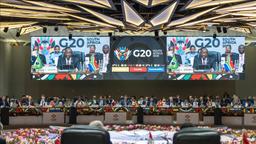
Nilgün Arısan Eralp
Director of EU Studies CenterRelated Publication Files

Policy Note / Nilgün Arısan Eralp, Senem Aydın Düzgit, Atila Eralp, Fuat Keyman, Çiğdem Nas
The advent of the Social Democratic Party (SPD)-Green Party-Free Democratic Party (FDP) coalition government in Germany formed in December 2021 has, among other issue areas, ushered in discussions on the implications for European foreign policy as well the EU’s relations with countries in its immediate neighborhood, including Turkey. With the onset of the Russia-Ukraine war in February 2022, the new government has found itself in a rapidly changing geopolitical context, where it has substantially increased its defense commitments in the face of Russian aggression, making a U-turn in its foreign and security policy, and played a key role in bringing Europe closer than ever on forging a unified foreign policy with a stronger defense component. While it is too early to say how the Russia-Ukraine War will play out and the precise implications that it will have for European security and defense policy, the European security architecture, as well as Germany’s and the EU’s relations with Turkey, certain trends in the policies of the new coalition government require further scrutiny regarding the potential and risks that they entail concerning the future of Germany’s and the EU’s relationship with Turkey. In what follows, we first outline the domestic and foreign policy agenda of the new German government and the constituent parties of the coalition, with a specific emphasis on the changing regional and global context. Then, we turn to discussing the potential impact of this political change in Germany on Turkey-EU-Germany relations, the potential that the Customs Union and the green transformation hold in constituting a rules-based relationship, and future scenarios.
You may read policy note from here.
This policy note has been prepared by TEPAV, IPC, and IKV.




